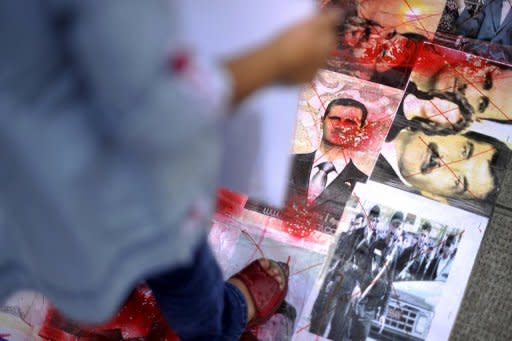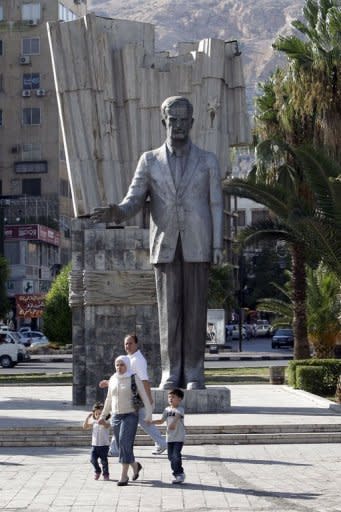US envoy meets opposition in southern Syria
The US ambassador to Syria met members of the opposition on a visit to the south of the country without government approval, as European powers ramped up pressure on President Bashar al-Assad. US officials said Robert Ford made the visit Tuesday to Jassem, which lies beyond a 25-kilometer (15-mile) limit from Damascus that the Syrians set after they were angered by a trip he made last month to the flashpoint city of Hama. US State Department spokeswoman Victoria Nuland said Ford informed the Syrian foreign ministry only after he returned to Damascus because three of his previous requests to travel beyond the limit were denied. Nuland said Ford went to Jassem, some 65 kilometres (42 miles) south of Damascus, because there had been peaceful protests there. "He had a chance there to talk to a number of Syrians, including those in the opposition. And then he drove back to Damascus," Nuland said. A large number of security forces accompanied him and the foreign ministry was not surprised to learn of his visit, she said. An embassy spokesman in Damascus who asked not to be named said Ford visited Jassem "as part of his routine diplomatic duties." Jassem is in southern Daraa province, where the anti-regime protests first broke out in mid-March. According to activists 15 people were killed there on when security forces opened fire to crush a demonstration. Ford in July angered Syrian authorities when he visited the central city of Hama, along with the French ambassador Eric Chevallier. Damascus denounced the move as an incitement to violence and meddling in Syria's internal affairs, and Foreign Minister Walid Muallem warned Ford and Chevallier not to travel outside Damascus. Asked if Ford was trying to get expelled, Nuland replied: "He is trying to do his job, which is to be able to maintain broad contacts with a broad cross-section of Syrians" and to make the US position known. The visit came as France, Britain, Germany and Portugal proposed UN sanctions against Syria, targeting Assad personally for his crackdown on opposition protests, diplomats said. A draft sanctions resolution, which has strong US backing and also calls for an arms embargo, was distributed to the 15-member council for the first time during consultations on the Syria crisis, envoys said. The Syrian president has faced growing international criticism over the military assault against protests inspired by the Arab Spring, which is said to have killed more than 2,200 Syrian civilians. The resolution would target individuals and entities considered responsible for the violence, a second diplomat said, confirming that Assad's name was on the resolution. "It would aim to stop the government getting the means to carry out the violence," the diplomat added. Western diplomats say they expect intense negotiations before calling for a vote. Russia and China have opposed any threat of action against Syria, fearing it would pave the way for another Western military intervention like the one in Libya. India, Brazil and South Africa have also raised objections. China and Russia also led opposition to a UN Human Rights Council resolution passed on Monday which called for a probe into violations, saying it was one-sided and politicized. India was amongst nine countries which abstained. As permanent members of the Security Council, China and Russia could veto any resolution. Russia's UN envoy Vitaly Churkin said ahead of Tuesday's meeting that it was not the right time to impose sanctions, and China said that it believed there should be more dialogue. The European nations would have to win over one of the doubters if they hope to gain a convincing majority in any Security Council vote. The Security Council has thus far only agreed to condemn the violence in Syria, which it did in a statement issued on August 3 following months of opposition from China, Russia and their council allies.





